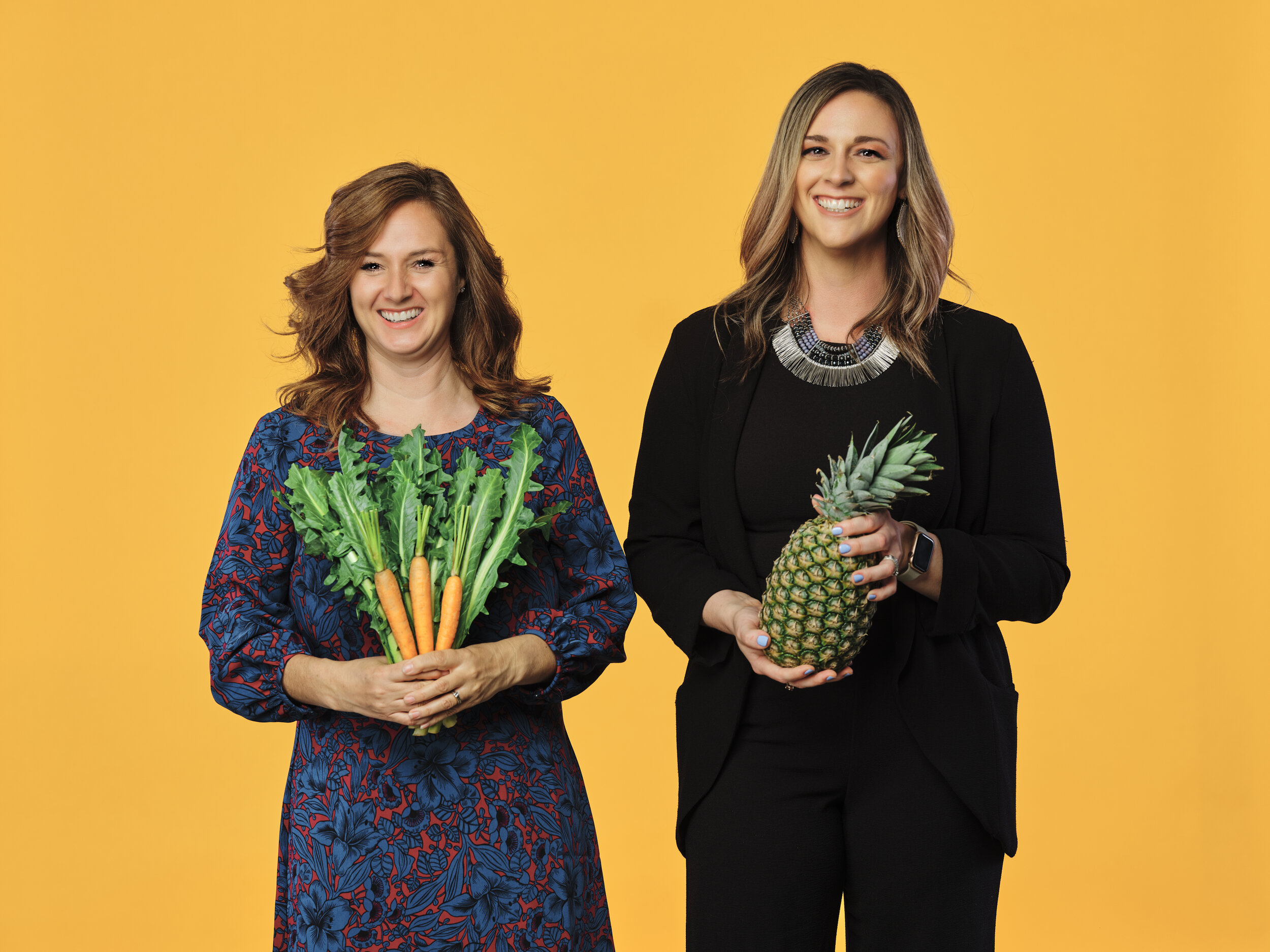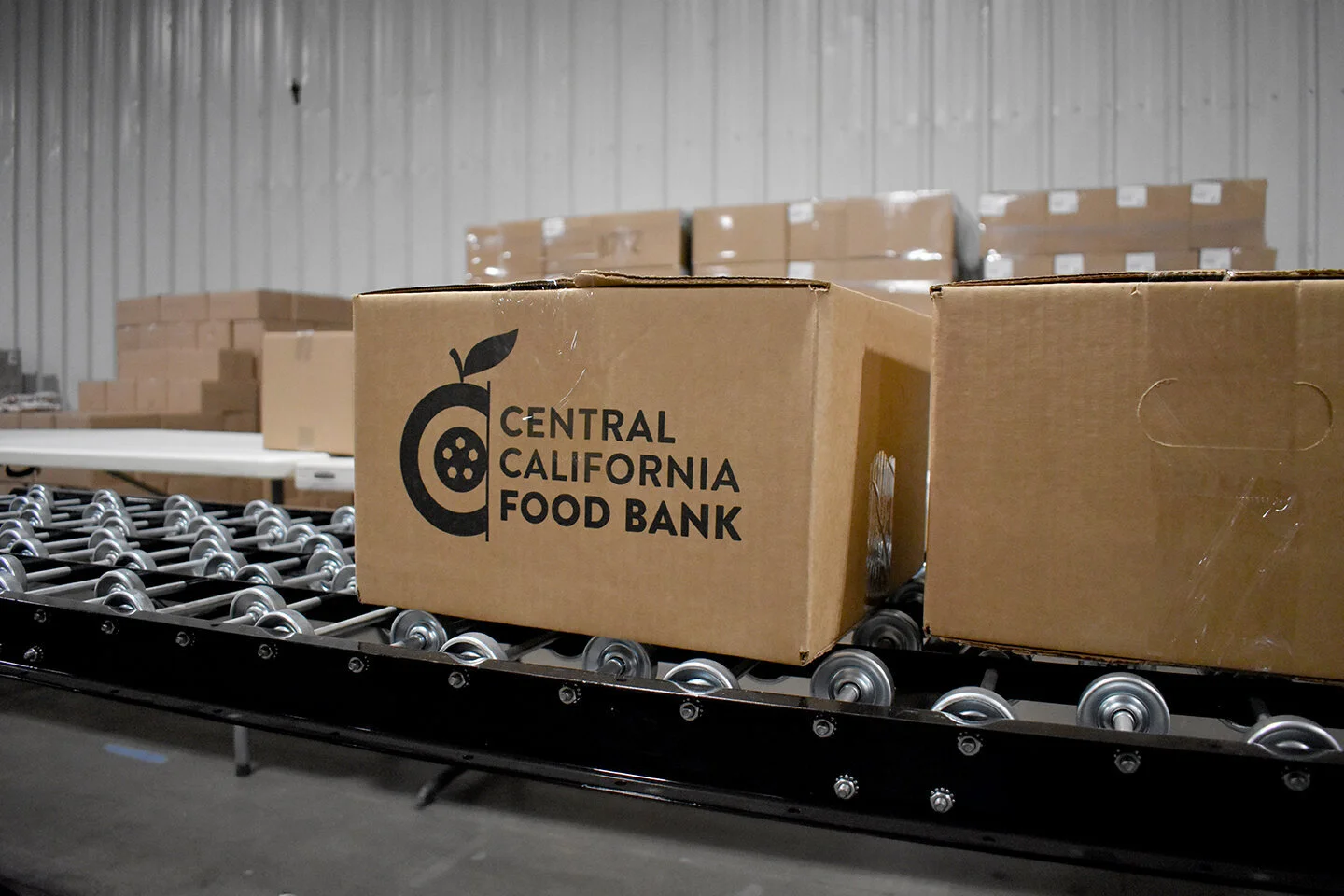FEEDING CENTRAL CALIFORNIA
Central California Food Bank
Central California Food Bank (CCFB) is waging a war on hunger. As a member of Feeding America, they fight hunger by gathering and distributing food, engaging in community partnerships that advance self-sufficiency, and by providing community leadership on issues related to hunger. They source food to more than 220 agencies between Fresno, Kern, Kings, Madera, and Tulare Counties, which serve over 280,000 people monthly, yet the uptick in food need has increased exponentially since the onset of the coronavirus pandemic.
Two years ago, then-CEO Andy Souza announced a name change, from Community Food Bank to the current Central California Food Bank, to reflect the organization’s far reach in the Golden State. When he retired at the beginning of this summer, it was a logical transition to promote from within. Co-CEOs Kym Dildine and Natalie Caples are dedicated to ending hunger in Central California. “The purpose is to create continuity and consistency for the organization’s transition during these challenging circumstances presented by the pandemic,” says Caples.
“With both of us at the helm,” Dildine believes, “we can leverage our strengths and diverse expertise to make an even larger impact on our organization and community.” Their partnership “is the result of having worked closely together for the past 8 years,” elaborates Caples. “Together we will work to strengthen relationships with our amazing agency partner network and other organizations outside our network to close the meal gap and serve more food to people in need.”
“We have wonderful relationships with other food banks, so when we have a surplus of a product we share it with others in our network and vice versa. We love seeing local produce leaving our warehouse and heading to dinner tables across the Valley,” relishes Robin Allen-Maddox, Communications Specialist at CCFB. “We know that the strawberries, mandarins, cabbage, squash, and more are providing people with the nutrients and energy they need to face the day.” No one should go hungry—especially in the agricultural capitol of the world. “Approximately 80% of our distributed produce is sourced locally. Any produce not obtained locally is from another county in California.”
There are three main ways in which Central California Food Bank invites the community to engage with them: volunteering, donating, and spreading the word. “Anyone five years of age and older can volunteer in our warehouse bagging produce, building food boxes, and more,” offers Allen-Maddox. “All volunteer information, waivers, and registration forms can be found on our website at www.ccfoodbank.org/volunteer. There are several ways to donate as well. You can become a monthly donor through our FEED365 program—it’s a budget-friendly way to help provide meals all year round! Additionally, you can make a one-time donation at www.ccfoodbank.org/donate.” CCFB’s partnerships with various food sources enables them to obtain food at a much lower cost than traditional outlets, enabling a mere $1 to provide up to seven meals.
Hunger Heroes, CCFB’s annual peer-to-peer fundraising campaign, gets the word out between April and June. Though its competitive fundraising teams were unable to complete their campaigns in-person this year, “it didn’t stop our participants from getting creative,” Allen-Maddox exclaims. “This year, we went exclusively online and our Hunger Heroes teams surpassed our $60,000 goal!” To stay up-to-date on current fundraising and awareness promotions, “We would love everyone to follow, like, and share the pertinent information we share on our social media platforms.” From engaging in social media to hands-on service and making a monetary donation, anyone can assist in feeding Central California.
LB Where and how can people get access to food provided through Central California Food Bank?
RAM There are many ways that people can access food provided by Central California Food Bank. We have a distribution calendar, a food locator map, and a pick-up/delivery appointment system all on our website under www.ccfoodbank.org/findfood. People can search for food distributions in their area code or on a day that works best for them. Neighbors in need can obtain fresh produce, shelf-stable goods, dairy, or meat depending on which type of distribution they attend: Neighborhood Market, food pantry, food box delivery/pick-up, or a USDA distribution.
LB How has Central California Food Bank revved up its efforts due to the effects of coronavirus?
RAM Beginning in mid-March, Central California Food Bank quickly pivoted all efforts to meet the demand and safety protocols brought on by this pandemic. We ran a gap analysis to find out where the greatest needs were, increased the amount of food being distributed to partner agencies, recruited additional partners, and launched a brand-new program called Groceries2Go. This innovative new program allows individuals to receive a food box by scheduling a pick-up or delivery appointment. It is our goal to make sure that food can be accessed by anyone who is in need.
LB In what ways has the food packaging and distribution process altered because of coronavirus?
RAM We have made several alterations to our practices to remain safe and healthy. Volunteers and staff complete a health survey every time they are in the office or distribution center. Additionally, everyone on-site wears a mask and practices appropriate social distancing. We have reduced the number of volunteers we can host at a time. Almost all produce is now bagged on-site so that fewer people are in contact with the food that is being distributed. Over 1,000 meal boxes are constructed each week by our dedicated volunteers!
Fresno Headquarters
4010 East Amendola Drive
Fresno, CA 93725
559.237.3663
www.ccfoodbank.org
Managing Editor Lauren Barisic
Photographers Central California Food Bank & Meza Films







